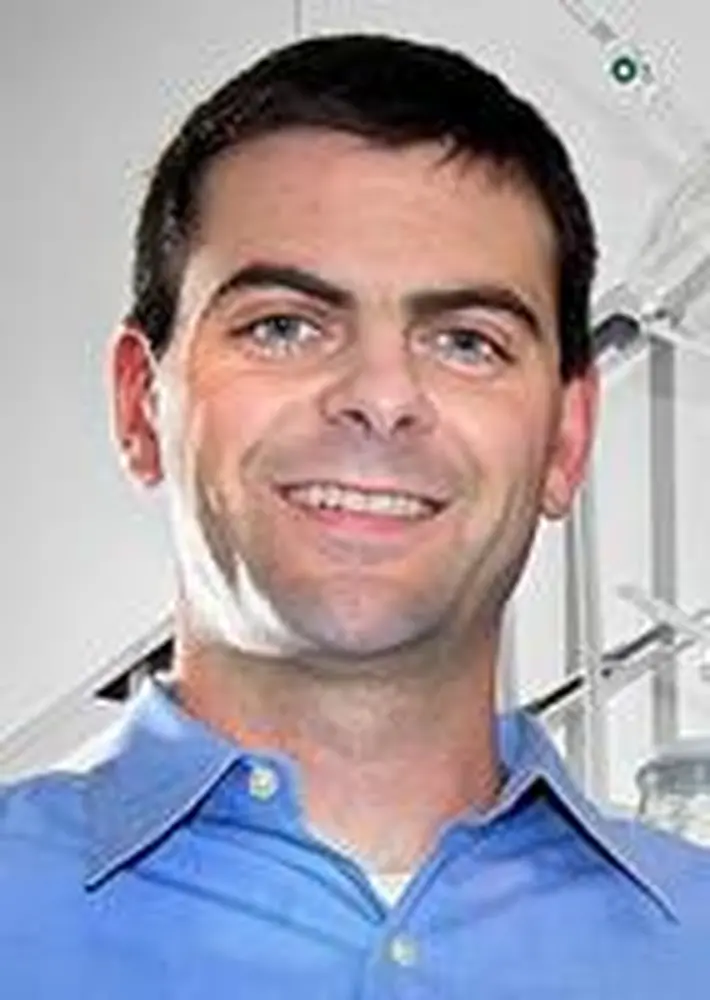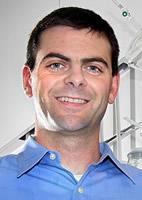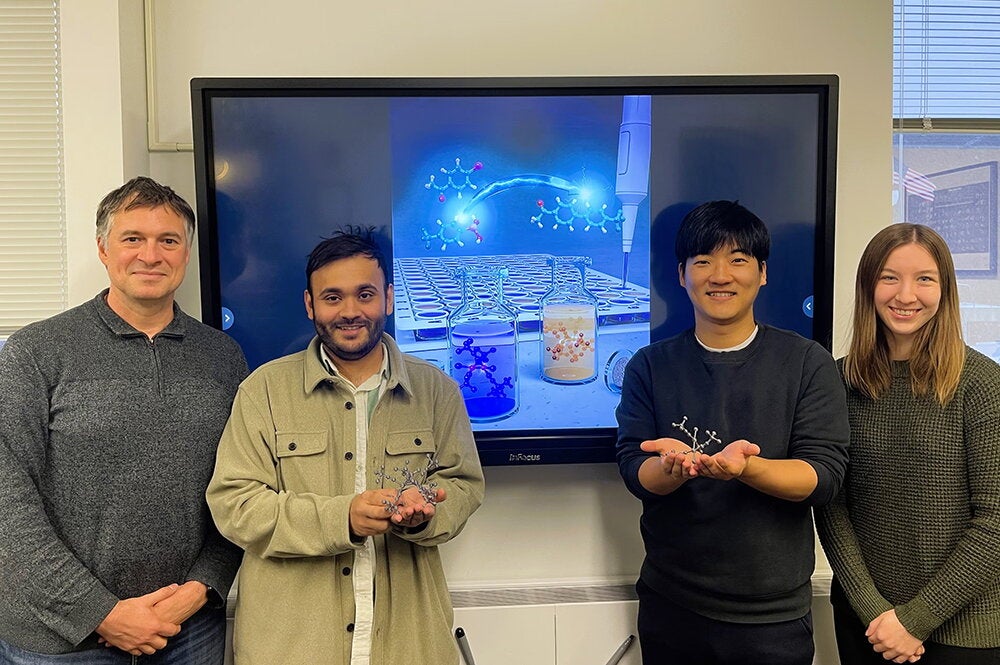

Discovering and creating new drugs has always been a slow leg in the never-ending fight against disease. A researcher in the College of Liberal Arts and Sciences, however, is being recognized for his work in simplifying the process and potentially getting new, promising discoveries to patients sooner.
Martin D. Burke, a professor of chemistry, is one of two faculty at the University of Illinois chosen as one of the world’s 35 Top Young Innovators by Technology Review, the world’s oldest technology magazine. The other is Nicholas Fang, professor of mechanical science and engineering.
Developing new drugs requires researchers to screen many organic compounds and initiate large numbers of chemical reactions to synthesize ones that work. The process is slow, but Burke has discovered how a single reaction can join components quickly to create wide arrays of molecules, enabling faster discovery of medicines and materials.
Burke hopes that his work will lead to a kind of “molecular prosthetic,” in which researchers find molecules that perform the role of proteins that are missing or malfunctioning in diseases such as cystic fibrosis.
Fang, a researcher at the Beckman Institute, has worked on creating light and sound at the nanometer scale and using them for imaging and nanofabrication.
Burke, Fang, and the other TR35 winners for 2008 are featured in the September issue of Technology Review, published by the Massachusetts Institute of Technology.
“The TR35 honors young innovators for accomplishments that are poised to have a dramatic impact on the world as we know it,” says Jason Pontin, editor-in-chief and publisher.


